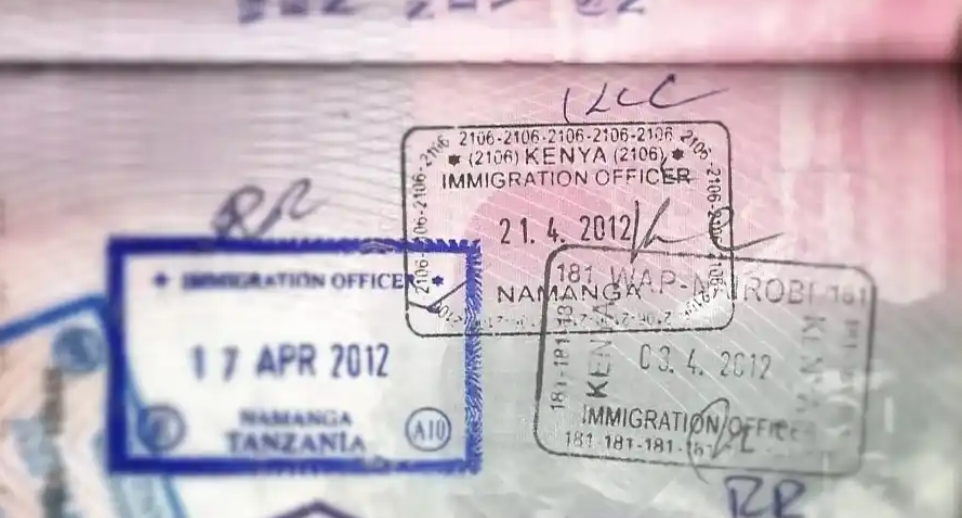As a first significant step towards removing barriers to intra-African trade, the President of Kenya, William Ruto, has announced plans to do away with the necessity that African individuals travelling to Kenya for commercial purposes must obtain a visa.
The declaration was made on Monday as part of Kenya’s agenda for the integration of Africa, which began gaining momentum during the rule of immediate former President Uhuru Kenyatta, who stepped down from his position earlier this year.
In the same month that Kenya made its move, Rwanda issued a similar instruction in the spirit of pan-Africanism without the demand for reciprocity from other countries. Both moves were made in the spirit of pan-Africanism.
Read also: EU launches digital transformation centre in Kenya
The overarching context
It has been suggested that Africa’s underdeveloped transport networks are to blame for an increase in the cost of goods and services of up to forty percent.
This makes intra-African trade uncompetitive in comparison to trade with industrialized continents such as Europe.
Remarks from Kenya’s President
“I want to promise you that this might be the last time you are looking for a visa to come to Kenya because of two reasons. Number one, because this is home and number two, we support wholeheartedly the AfCFTA.
We must remove any impediments to the movement of people around our continent,” President Ruto said at a forum on African Continental Free Trade Area (AfCFTA) in Nairobi.
This is why we must take such barriers as weak transport and logistics capacity, customs related delays, rules of origin, import bans and export restrictions, quotas and levies, technical barriers, import permits and licenses, very seriously because they ultimately reverse all the depths we try to make towards a free trade area,” Dr Ruto said.
“They may look small, incremental but their sum total amounts to a reversal of what we are trying to achieve.” he added.
According to provisional figures compiled by the Central Bank of Kenya, Africa accounted for 18.49 percent, or Sh622.56 billion, of Kenya’s overall trade value of Sh3.37 trillion in 2022. This percentage was practically steady from 18.39 percent in the previous yearl
Kenya accuses a tax agency of graft
As the economy of Kenya continues to struggle, the president of the country has accused the tax agency of graft.
Under the administration of William Ruto, Kenya’s economy has been put under pressure due to rising debt repayments, insufficient income collection, and high prices for essential commodities.
The Deputy President of Kenya, William Ruto, has levelled accusations of corruption and collusion with tax evaders against the employees of the tax collection agency. He claims that these actions have led to a reduction in revenue for the government.
Ruto was elected in August on the promise that he would improve the lives of the less fortunate, but he has had a difficult time in office so far due to the mounting government debt repayments, revenue collection deficits, and high costs of basic goods, all of which have led to protests and pinched the economy.
Ruto inherited an enormous debt profile from his predecessor, Uhuru Kenyatta, which included Kenya’s enormous external debt, which as of January 2016 at $34 billion.
According to comments made by presidential adviser David Ndii in April, annual interest payments on domestic debt alone have increased from 180 billion shillings ($1.34 billion) when the debt binge first began to 680 billion shillings ($5.09 billion) this year, putting additional strain on the government’s ability to generate cash flow.
During the past few months, members of the public sector have voiced their dissatisfaction with delays in salary payments, and in response, local authorities have threatened to shut down their operations in a show of protest against the national government’s tardiness in distributing cash.
Ruto claimed that dishonest KRA personnel were hindering tax collection efforts by assisting corrupt taxpayers avoid paying. The agency has not addressed the accusation.
Kenya’s tax collection agency is under investigation for corruption. 75 KRA employees were arrested in May 2019 for aiding tax evasion and bribery. Ruto reportedly accused agency personnel of obstructing efforts to digitise income collection to prevent the government from closing loopholes.
“I have to be candid because I have a job to do,” the president said.
KRA has not released its latest tax collection data, but local media reported that it collected 1.57 trillion shillings ($11.5bn) in the 10 months to April, leaving it two months to fulfil the government’s June target of 2.1 trillion.
The president claimed Kenya lags behind South Africa in tax revenue as a percentage of GDP.His administration will offer tax rises to parliament next month to boost revenue, angering citizens and the opposition.




